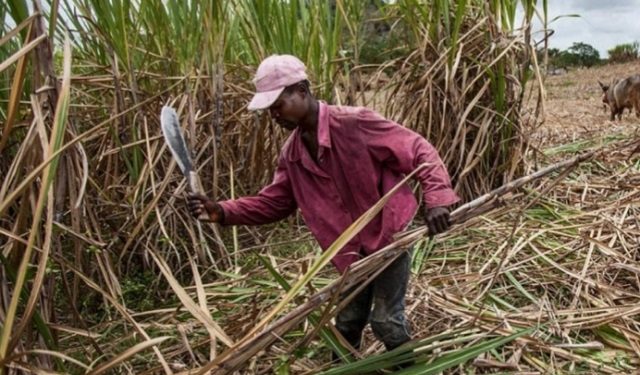President Yoweri Kaguta Museveni has advised sugarcane farmers across Uganda to scale up their production if they are to earn sustainably from the crop, warning that small-scale farming is no longer economically viable.
While meeting sugarcane farmers and millers at Mayuge State Lodge, the President emphasized that cultivating only a few acres of sugarcane leads to poor returns, and urged farmers to rethink their approach if they are to benefit from government support and a more stable market.
“Farming sugarcane on just 2 acres is not profitable enough; one would struggle to earn even 4 million shillings from 5 acres,” Museveni said. “In contrast, farmers like Nyakaana in Fort Portal are earning millions from well-managed farming on just one acre.”
The meeting was convened to address concerns over price fluctuations in the sugarcane market and explore solutions to protect the livelihoods of farmers who have been hit by inconsistent prices and rising production costs. Farmers requested government subsidies to reduce expenses and improve their margins.
Museveni pledged support, saying the government is committed to helping farmers earn fairly from their work.
“We will work to ensure that farmers receive fair prices,” he stated. “The sugarcane growers expressed their need for government support to subsidize their costs and maximize their profits.”
In a firm directive, the President also demanded the immediate formation of a Sugar Council, a body meant to oversee regulation, mediation, and representation within the sector. He warned that any further delays would not be tolerated.
“I was also informed about the unnecessary delays in establishing a sugar council, which is crucial for mediation, regulation, and representation,” Museveni said. “This issue must be resolved by Monday without fail.”
Uganda’s sugar industry plays a vital role in rural employment and national trade, but it has faced recurring challenges due to unregulated pricing, overproduction in some regions, and weak coordination among stakeholders.
By calling for large-scale, well-managed farming, Museveni is pushing for a commercial mindset among smallholder farmers, many of whom rely on sugarcane as a primary source of income.
“Let us make the right calculations; otherwise, we may miss out on profitable opportunities,” the President urged.
With Museveni’s renewed push, the spotlight now turns to both government actors and farmers to implement practical reforms—ensuring the sector not only survives but thrives through modern, scalable, and profitable farming models.





















